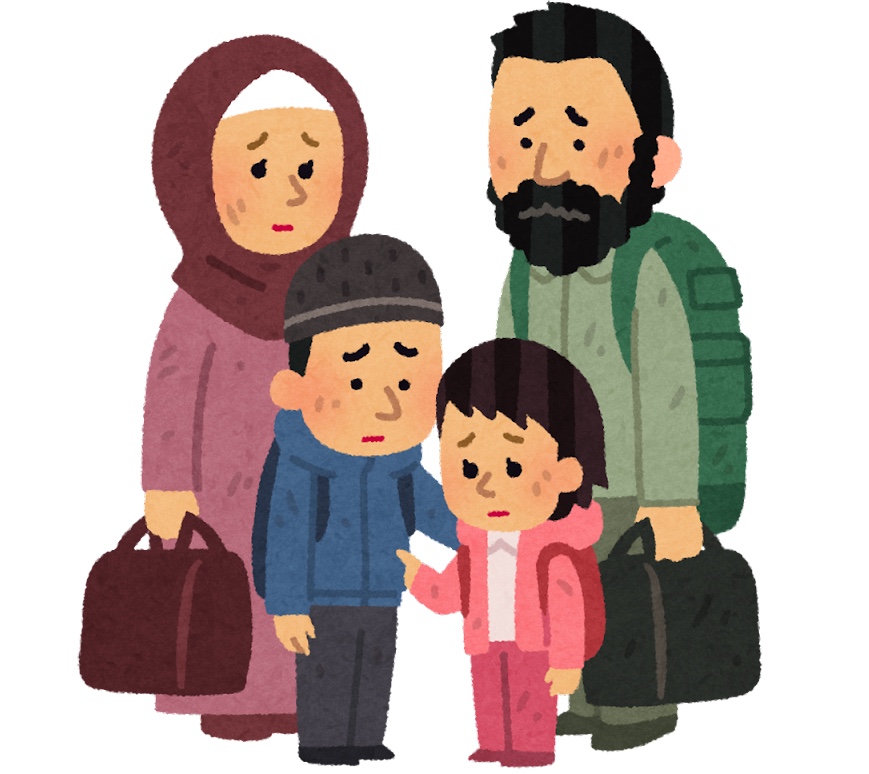Every year, tens of millions of people around the world are forced to flee from their homes and live as refugees. A lot of them come to Japan seeking refugee status, but because of its only 0.2% status rate, the country is currently taking a strict stance on accepting asylum-seekers. Hence, many refugees, who have fled to Japan, are currently leading difficult lives because their applications for refugee status have not been approved.
In this article, we will explain the reasons why refugee status is so difficult to obtain in the country as follows:
Applying for refugee status for the purpose of employment
In 2010, Japanese government decided to uniformly allow all applicants for refugee status in order to work in the country. As a result, a number of refugees migrating for the purpose of employment rather than displacement and in need of assistance, have increased rapidly. Because of these circumstances, Japan, later, abolished the uniform work permit in 2018 and further narrowed the gate for applying for refugee status by informing embassies in various countries. Not because Japan is strict about having and accepting asylum-seekers from different countries, but because the country is tightening its restrictions to prevent refugees under false pretenses from residing in Japan.
Who is a refugee?
A refugee is someone who has been forced to flee his or her country because of persecution, war or violence. A refugee has a well-founded fear of persecution for reasons of race, religion, nationality, political opinion or membership in a particular social group. Most likely, they cannot return home or are afraid to do so. War and ethnic, tribal and religious violence are leading causes of refugees fleeing their countries.
Definition of refugee also state that, “owing to well-founded fear of being persecuted for reasons of race, religion, nationality, membership of a particular social group or political opinion, is outside the country of his nationality and is unable or, owing to such fear, is unwilling to avail himself of the protection of that country; or who, not having a nationality and being outside the country of his former habitual residence, is unable or, owing to such fear, is unwilling to return to it.”
68% of those displaced across borders come from just mostly this five countries:
- Syria
- Venezuela
- Afghanistan
- South Sudan
- Myanmar
The definition of “refugee” is too narrow.
The Refugee Convention, to which Japan is a signatory, defines “refugees” as people who flee to another country because of the fear of persecution if they stay in their own country.
However, the Convention has political asylum seekers in mind, and in some respects, does not apply refugees from current conflicts and civil wars. For this reason, the Japanese Ministry of Justice sometimes refuses to recognize people fleeing to another country due to conflict or civil war as “refugees”. Proof of possible persecution is required, and the degree of persecution is also a factor in the decision. Because of this narrow definition of “refugee” when determining whether a person is a refugee or not, it is not uncommon for an application for refugee status to be rejected.
Many refugees are falsely claiming refugee status.
The argument contended by the Immigration and Immigration Control Agency of the Ministry of Justice that the majority of refugee applicants in Japan are “fake refugees,” that is, people who are not refugees but are applying for refugee status, and that, the extremely low number of refugee statuses is not a problem, is gaining ground.
While we acknowledge the reality of refugee applications for the purpose of working against the backdrop of the labor shortage in Japanese society, the biggest problem with Japan’s refugee status system is that it fails to save those who should be protected as refugees in the first place.
As reports spread about the large number of fake refugees and the focus becomes more and more on how to crack down on imposters, people are becoming less and less aware of the problem of the failure to protect those who should be protected as refugees.




Comments